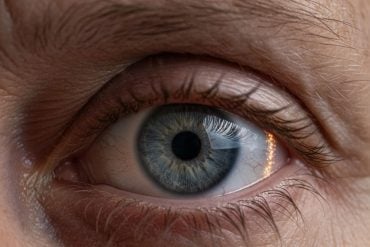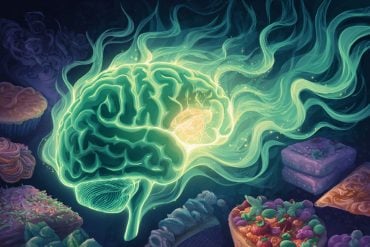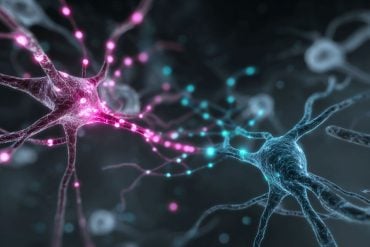Summary: Long-term cannabis users experience more sleep problems, which are associated with poorer visuospatial memory performance. Researchers compared 141 regular cannabis users to 87 non-users and found that chronic cannabis use may worsen both sleep and memory, despite its common use as a sleep aid.
The study found no significant difference in verbal memory between the two groups. These findings suggest that cannabis use for sleep should be approached with caution and highlight the importance of evaluating sleep when assessing its impact on brain health.
Key Facts:
- Long-term cannabis users report more sleep problems than non-users.
- Poorer sleep is linked to reduced visuospatial memory performance.
- The study suggests reconsidering cannabis as a sleep aid due to these side effects.
Source: Center for BrainHealth
The growing legal use of recreational and medical cannabis has generated an increased concern for potential side effects from long-term use, particularly regarding problems with memory and sleep. Until now, the effect of cannabis use on sleep and on memory have only been studied separately.
Research led by Francesca Filbey, PhD, from the Laboratory of Neuroimaging of Reward Dynamics at The University of Texas at Dallas’ Center for BrainHealth, in collaboration with a team from the University of Amsterdam, aimed to fill this gap by testing how sleep impacts memory among cannabis users.

The study, “The role of sleep in the link between cannabis use and memory function: evidence from a cross-sectional study” was recently published in The American Journal of Drug and Alcohol Abuse.
A total of 141 adults with cannabis use disorder (CUD, defined as using cannabis regularly, more than 5 days per week during the past year) and 87 non-current users participated in this study.
Participants self-reported their frequency of sleep problems within the past week and completed a variety of cognitive assessments that tested their verbal memory, visuospatial learning and memory performance.
Results revealed that the CUD group reported more sleep problems than the non-CUD group, and that this contributed to visuospatial memory problems as well. There was no difference between the two groups in verbal memory performance.
Lead author Tracy Brown, a UT Dallas psychology PhD student in Dr. Filbey’s lab, stated, “Although sleep is one of the primary reasons people use cannabis, our findings suggest that long-term cannabis use actually results in poorer sleep, which is associated with poorer memory.
“These findings are useful to inform the consumers, clinicians and policymakers about the therapeutic considerations for cannabis, particularly regarding its use as a sleep aid.”
He added, “For researchers, this study points to the importance of analyzing sleep when evaluating the effects of cannabis on brain health.”
Funding: This research was supported by grant 1R01 DA042490 from the National Institute on Drug Abuse/National Institute of Health.
About this cannabis, sleep, and memory research news
Author: Stephanie Hoefken
Source: Center for BrainHealth
Contact: Stephanie Hoefken – Center for BrainHealth
Image: The image is credited to Neuroscience News
Original Research: Open access.
“The Role of Sleep in the Link Between Cannabis Use and Memory Function: Evidence From a Cross-Sectional Study” by Francesca Filbey et al. The American Journal of Drug and Alcohol Abuse
Abstract
The Role of Sleep in the Link Between Cannabis Use and Memory Function: Evidence From a Cross-Sectional Study
Background: It is known that cannabis use affects memory and sleep problems independently. However, to date, how memory and sleep problems may interact as a result of cannabis use remains unknown.
Objectives: We performed a secondary analysis of existing data to determine whether sleep quality mediates the association between cannabis use and memory and whether sex moderated these effects.
Methods: A total of 141 adults with cannabis use disorder (CUD) (83 men) and 87 without CUD (39 men) participated in this study. Outcome measures included self-reported sleep problems from the past 7 days (Marijuana Withdrawal Checklist), learning and memory performance via the short visual object learning task (sVOLT), short visual object learning task delayed (sVOLTd), and verbal memory via the N-back.
Bootstrapped mediation and moderated mediation analyses were run to test if sleep quality mediated the association between cannabis use and memory outcomes and whether sex moderated these effects, respectively.
Results: Sleep quality mediated the effect of group (i.e. adults with and without CUD) on sVOLT efficiency scores (indirect effect ß = −.08, 95% CI [−0.14, −0.04]) and sVOLTd efficiency scores (indirect effect ß = −.09, 95% CI [−0.14, −0.04]), where greater sleep difficulties was associated with poorer memory performance (decreased efficiency scores). Sex did not moderate these relationships.
Conclusion: These initial findings of a mediating role of sleep in the association between CUD and visual learning memory highlight potential critical downstream effects of disrupted sleep in those with CUD and suggest the importance of investigating sleep in CUD.






